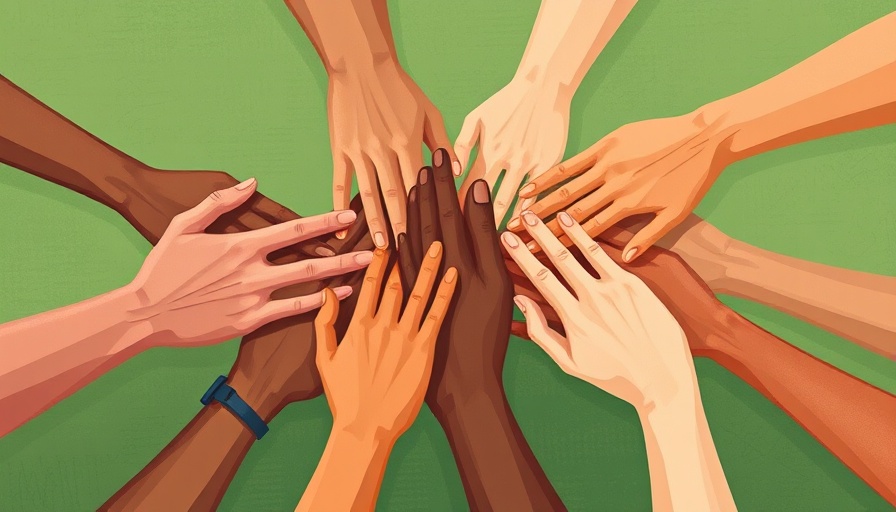
Understanding Mindfulness in Racial Healing
In today's socio-political climate, divisiveness on issues of race and racism runs deep. Tovi Scruggs-Hussein's series on mindfulness represents an essential path towards introspection and healing. This series emphasizes the emotional intelligence fostered through mindfulness, enabling individuals to explore their connections with themselves and others amidst the complexities of race. By cultivating compassion, self-awareness, and an openness to unlearn, readers are invited to engage deeply with their own experiences and emotional responses to racial issues.
Why Mindfulness Matters in Conversations About Race
The act of mindfulness forms the foundation for authentic conversations about race. In a society marked by emotional turmoil—from protests to political tensions—mindfulness serves as a grounding practice that invites individuals to reflect and respond thoughtfully rather than react impulsively. This process begins with acknowledging personal biases, a vital step for reducing misunderstandings, fostering empathy, and ultimately bridging gaps between diverse communities. With guided meditations and reflective practices, this approach enables participants to confront uncomfortable truths and encourages a collective journey toward healing.
The Link Between Systemic Healing and Self-Reflection
Scruggs-Hussein articulates a transformative principle: healing is a shared endeavor, necessitating both personal and collective introspection. Systemic racism persists not only through institutional structures but in the innate biases we perpetuate individually. By acknowledging the systemic nature of racism, we can begin to redefine our roles and responsibilities in dismantling these structures. Mindfulness awakens a heightened awareness, prompting individuals to assess their contributions to systemic issues while also fostering compassion towards themselves and others caught in the cycle of racism.
Tools for Navigating Racial Tensions Through Mindfulness
Mindfulness-based practices offer tangible tools for addressing racial tensions. Techniques such as guided meditations encourage participants to integrate insights from their emotional experiences into daily actions. Reflection prompts invite deep inquiry into personal histories with race, thereby laying the groundwork for meaningful dialogue. Furthermore, these practices can alleviate discomfort surrounding discussions on race by contextualizing personal experiences within a broader societal framework. Participants learn to transform shame and frustration into opportunities for growth and understanding, leading to genuine conversations about race.
The Courage to Engage: Moving From Awareness to Action
Engaging with racial issues requires courage, not only to confront one's biases but also to respond with love and compassion toward others. As highlighted in the works articulated by Scruggs-Hussein, this commitment to personal transformation ultimately fuels systemic change. By practicing mindfulness, individuals learn to navigate their emotions—whether they be anger, grief, or fear—transforming these into actionable insights that can affect change both personally and socially. The journey is not merely about awareness but about fostering connection and shared humanity, helping to create spaces for healing and growth.
In a world where racial divides seem insurmountable, cultivating a mindful approach equips individuals with the resilience required for these challenging conversations. If you are ready to dive deeper into your personal journey of racial healing, consider joining this mindfulness series, where you can explore strategies for self-transformation and contribute to meaningful societal change.
 Add Row
Add Row  Add
Add 



Write A Comment